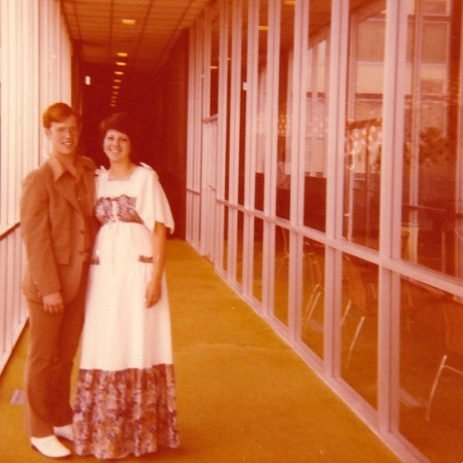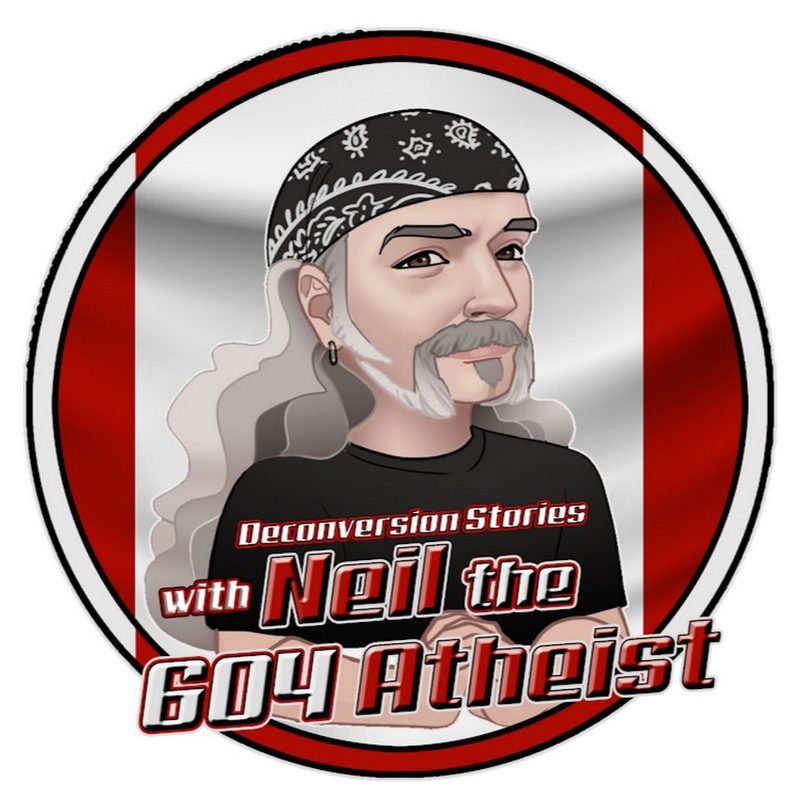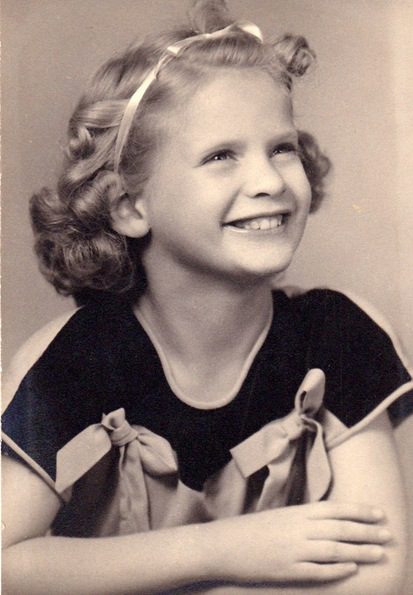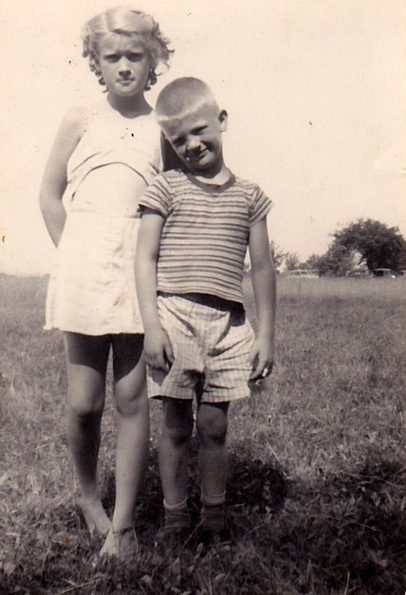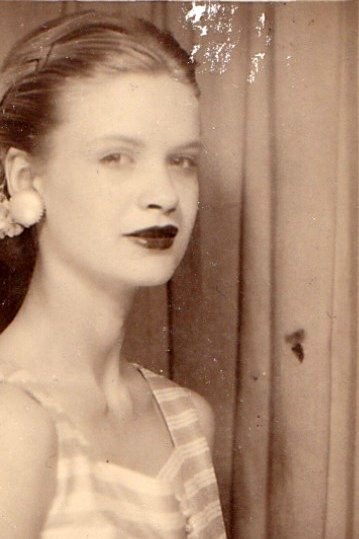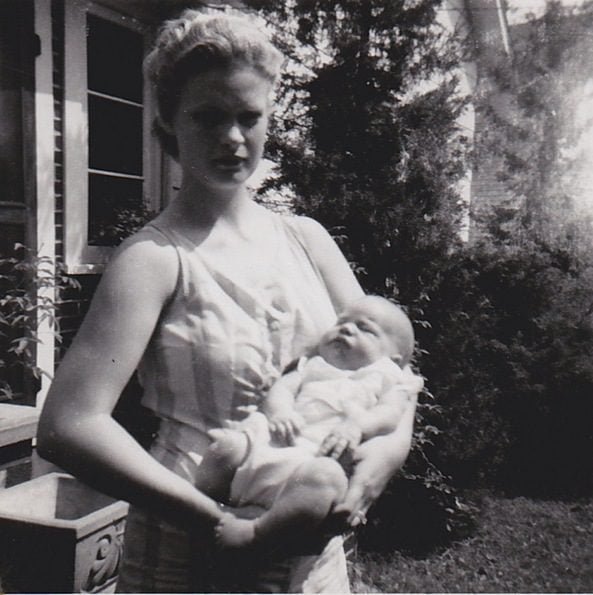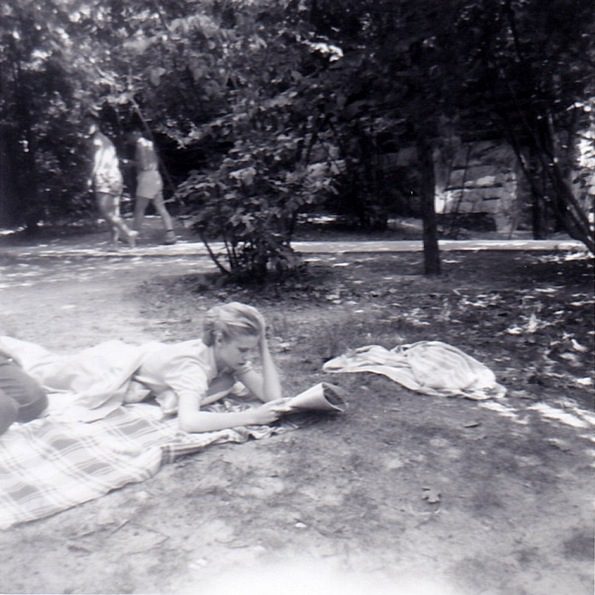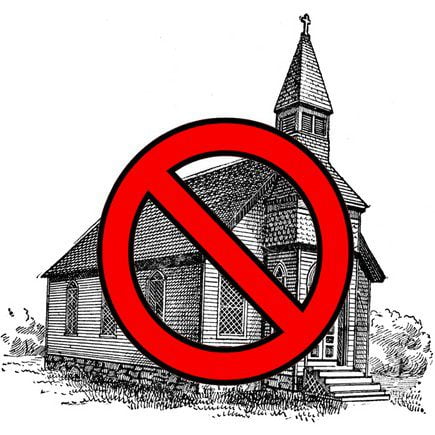
To those who call me Bruce, Butch, Dad, or Grandpa:
In November 2008, Polly and I attended church for the last time. Since then, I have walked through the doors of a church three times, once for a baby baptism, and twice for a funeral. All three experiences left me angry and irritated.
The first service was a baby baptism at a local Catholic church. I thought, Bruce, ignore the bullshit, you are there to support your children. I was fine until the priest began exorcising the devil out of my granddaughter. I wanted to scream, but I didn’t. After the service, I made up my mind that I would never again attend such a service. No baptisms, no confirmations, no dedications, no nothing. Nada, zero, zip. All of my children and extended family know this. Polly is free to attend any or none of these services, but I can’t and I won’t.
The last two services were funerals. One was the funeral of my sexual predator uncle. The local Baptist preacher preached my uncle right into heaven. (I wrote about that here: Dear Pastor, Do You Believe in Hell.) The second service was for Polly’s fundamentalist uncle. Nice guy, but the service was all about Jesus, complete with a sermon and call to salvation. Again, I wanted to scream, but I reminded myself that I was there to support our family.
I’ve decided I can suck it up and endure the Jesus talk for the sake of family. I know there are a lot of funerals in our future, that is if the rapture doesn’t take place. I wish it would so there would be no Christians left to bother me. I’ll do my best to support my family in their hour of grief; however, anyone who tries to evangelize me does so at their own risk. I refuse to be bullied by sanctimonious Bible thumpers who think they are salvation dispensing machines.
I’ve decided that I will walk through the door of a church for two events: funerals and weddings. That’s it. I don’t do church, and the sooner family, friends, and local Christian zealots understand this the better. If the event doesn’t say funeral or wedding, I ain’t going. I can’t and I won’t. If this causes someone to be angry, upset, or irritated, there is nothing I can do about it. That’s their problem.
You see, twelve years ago I said to my family, “you are free.” (Please see Dear Family, Friends, and Former Parishioners.) Be who and what you want to be. Be/stay a Christian, choose another religion or philosophical system, or choose nothing at all. With freedom comes choice. It seems the religious love their choice. They find great benefit, purpose, and meaning, through their particular religion. That’s great. If it makes them happy, then I am happy. But, shouldn’t I be afforded the same freedom and happiness? Why shouldn’t my wife and I have the freedom to NOT participate in church services, rituals, and the like?
Suppose I worship the Cat God Purr. Once a year, all the Purrites get together at my house for a very special service. Part of our ritual is the sacrifice of a female cat. Much like the Israelites in the Bible with their blood sacrifices to Jehovah, we offer up a cat as our sacrifice to Purr. Afterward, we roast the cat and eat it, and in doing so we are taking into our body and soul the blood and body of Cat God Purr.
Now imagine me inviting my Christian family to the service. I let them know when the service is and how important it is to me for them to be there. I also let them know that I would like them to partake of the roasted cat so they too could have inside of them the blood and body of the Cat God Purr. Can you imagine how they would respond?
First, in their eyes Purr is a false God. Second, the cat roasting ritual is barbaric and offensive. While I may invite them to the service, I would certainly understand if they didn’t come. Why? Because my God is not their God and I respect their right to believe whatever they want to believe.
It seems if people are atheists, they are not afforded the same decency and respect. Did Polly and I become lesser persons, parents, or grandparents the moment we stopped believing? Does our relationship with family and friends hinge on us sitting our ass in a pew for ten minutes or an hour? Frankly, I refuse to let any particular circumstance harm a relationship. If someone asks me to go to a church service or a ritual and I say no and they never ask me again, it’s no big deal. However, once someone knows that I do NOT attend such services and they continue to ask me anyway, this tells me that they do not respect me.
I spent 50 years in the Christian church and 25 years in the ministry. I’ve had enough church to last me ten lifetimes. The best way for the religious and the nonreligious to get along is for both sides to compartmentalize their beliefs. I don’t talk about religion/atheism/humanism with my Christian family and friends unless they ask. If they ask, I will gladly give my opinion or share my viewpoint. I am not going to invite them to hear Sam Harris speak, nor am I going to give them Bart Ehrman’s books. If they ask or want to know, that’s different, but if they don’t then I choose to focus on the other things we have in common and leave religion/atheism in the closet. Christian family and friends need to do the same. If I ask, then by all means tell me. If not, let’s focus on the things we have in common. Life is too short to have conflict over religion.
I subscribe to the when-in-Rome-Do-as-the-Romans-Do rule. When I am at a Christian’s home and they offer up a prayer to their deity, I respectfully bow my head. It’s their home and they are free to do what they want. Yes, I have an opinion about God and prayer, but their home is not the place to share it. The same goes for my home. We are not religious, we are not Christian. We don’t pray over our meals, nor do we give the gods one thought before we eat. While we do allow Polly’s dad to pray over the meal when he is here, that is out of respect for him. No big deal, just one more prayer hitting the ceiling. Thousands are already embedded in the paint, what’s one more?
When Christians come to my home, they shouldn’t expect me to change how I live or how I talk. I shouldn’t have to change the music I am listening to, change the TV channel, or remove books from the bookshelf. This is our home, and anyone, even family, who walks through the door is a guest. And the same goes for the Christian’s home. If I visit there, I don’t expect them to do anything different from what they normally do. I respect their space, their freedom.
Freedom is supposed to be a two-way street. Unfortunately, for many Christians it is a one-way street called Their Way. They want the freedom to worship their God and practice their faith, but they don’t want to grant others the same freedom. Of course, I know why. They think they have the truth and Polly and I are on a false path that leads to judgment, hell, and eternal punishment. They don’t want us to continue driving on the highway that leads to perdition. But, here’s the thing . . . we don’t think we are on the highway to hell. Since we don’t believe there is a God, it naturally follows that we don’t believe in hell, judgment, heaven, or eternity. It’s up to us to determine what road we want to travel, and for Polly and me, we are quite happy to drive on the road named Reason.
Let me conclude this post with a personal thought about church services in general and why I can’t and won’t attend them. First, I know the Bible inside and out. I have a theological education, an education that began at a Bible college and continued through the 25 years I spent pastoring churches. So, when I hear preachers and priests preach, I can spot the bullshit from a mile away. I also have little tolerance for preachers who lack the requisite skills necessary to craft a good sermon and deliver it. In my opinion, there’s lots of anemic, pathetic preaching these days. Second, I find many of the rituals offensive. Casting the devil out an infant? Washing away sin with water? Services that are all show and no substance? Vows that are uttered and become lies before the service is over? Wine and wafers turning into real blood and flesh? Magic wand rituals and practices that pretend to make the past go away and make the present brand new? Preachers, pastors, bishops, and priests touching a person and conferring some sort of divine power? All of these things are offensive to me. They are reminders to me of the bankruptcy of religion and why I want nothing to do with it.
I know that I can’t force people to accept me as I am, but I can choose how and when I interact with them. Years ago, I was listening to Dr. Laura and a grandmother called up complaining about her daughter-in-law. Dr. Laura told her to quit her bitching. If she didn’t, she risked not being able to see her grandchildren. That was good advice and I remembered it years later when my fundamentalist step-grandmother called me. I wrote about this in the post Dear Ann:
. . . For his seventy-fifth birthday you had a party for Grandpa. You called a few days before the party and told me that if I was any kind of grandson at all that my family and I would be at the party. Never mind Polly would have to take off work. Never mind the party was on a night we had church. All that mattered to you was that we showed up to give Grandpa’s birthday party an air of respectability.
I remember what came next like it was yesterday. The true Ann rose to the surface and you preceded to tell me what a terrible grandson I was and how terrible my family was. You were vicious and vindictive.
Finally, after forty years, I had had enough. I told you that you should have worried about the importance of family twenty years ago. I then told you that I was no longer interested in having any contact with you or Grandpa. Like my mother, I decided to get off the Tieken drama train…
That’s what can happen when we push, badger, and cajole. I am an atheist, not a Christian, and will likely remain so until I die. My family and friends need to come to terms with this, and if they don’t, then it’s on them if they ruin our relationship.
When our children married, we vowed that we would NEVER be meddling parents/grandparents. If we offer our opinion on something, we do it once. That’s it. Unless someone asks, we don’t say another word. Every person in my family has the right to live freely and authentically. Yes, they make decisions that I think are foolish, but it’s their life and they are free to live it any way they want. Whether it is Polly’s parents, our children, our daughters-in-law, or our grandchildren, we don’t meddle in their lives. We want them to be happy. If they are happy, then we are happy.
All that I want is the freedom to live my life authentically. Surely, that’s not too much to ask.
Bruce Gerencser, 68, lives in rural Northwest Ohio with his wife of 47 years. He and his wife have six grown children and sixteen grandchildren. Bruce pastored Evangelical churches for twenty-five years in Ohio, Texas, and Michigan. Bruce left the ministry in 2005, and in 2008 he left Christianity. Bruce is now a humanist and an atheist.
Your comments are welcome and appreciated. All first-time comments are moderated. Please read the commenting rules before commenting.
You can email Bruce via the Contact Form.



